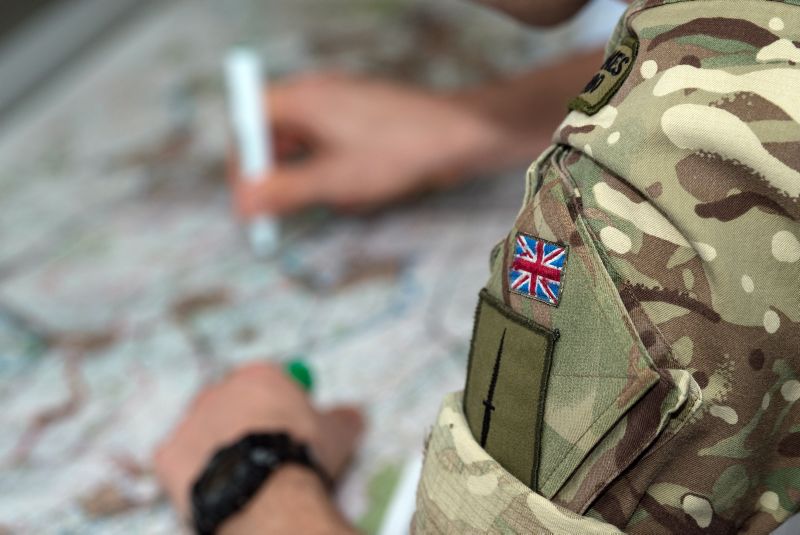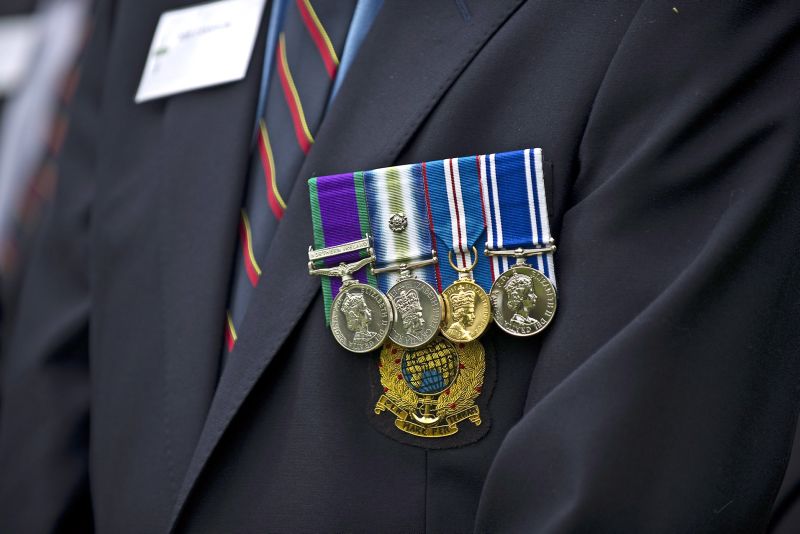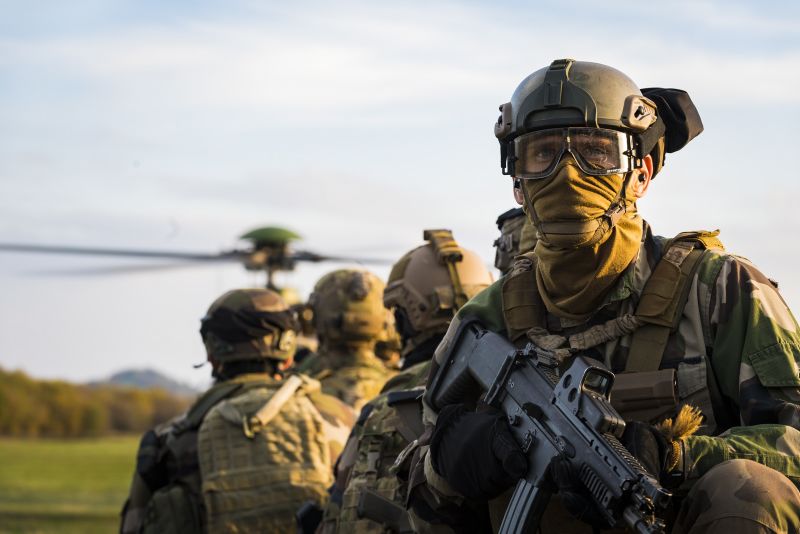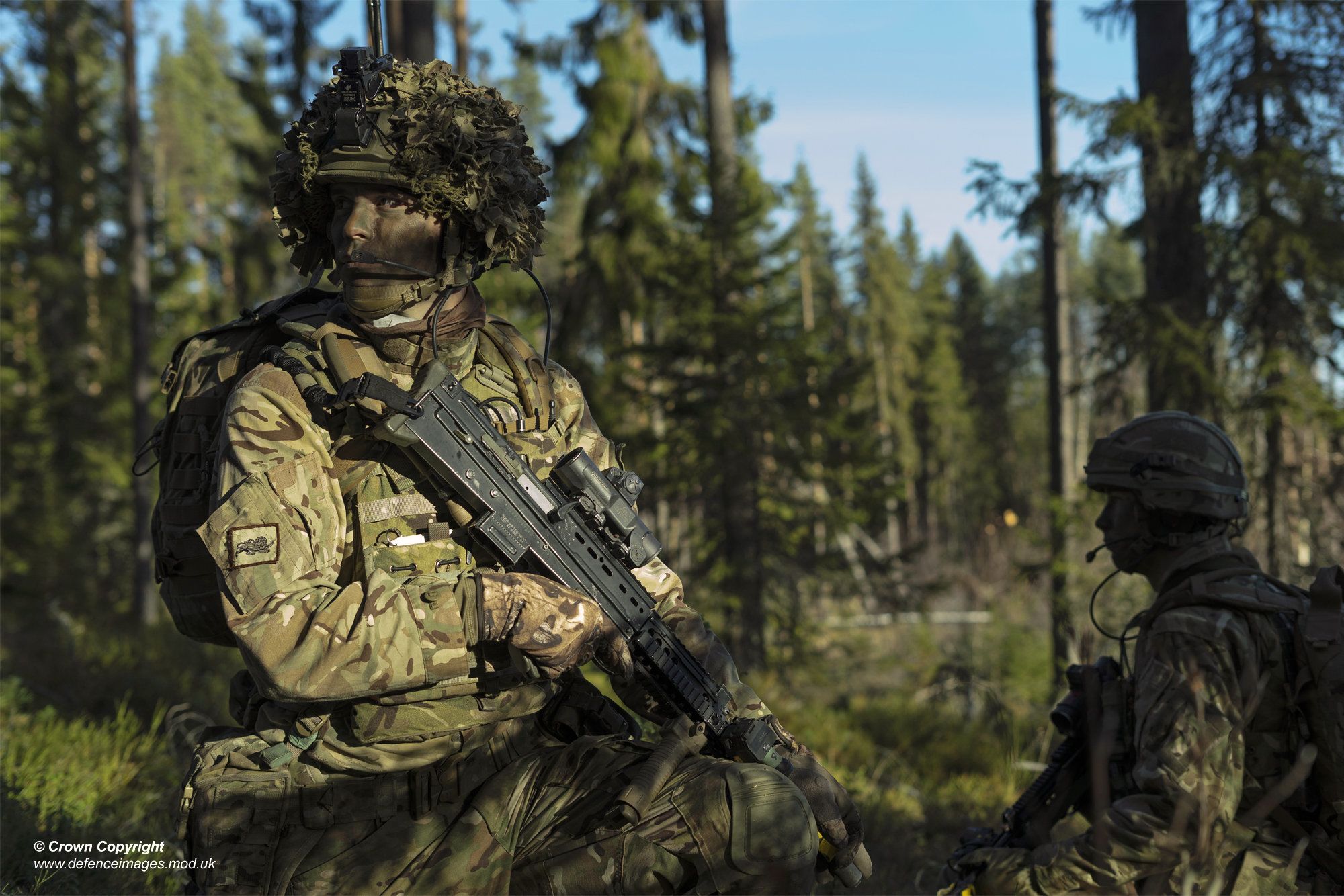How should the Government improve mental health services for our soldiers and veterans?
MPs on the House of Commons Defence Select Committee have been investigating mental healthcare provision

There is no doubt that some serving personnel, veterans and their families who need mental health care are being completely failed by the system.
The Defence Committee have previously found that the vast majority of veterans leave the Services with no mental health conditions. However, the minority of serving personnel and veterans who do suffer from mental health conditions clearly need timely and appropriate care.
Only £10 million is annually spent on veteran-specific mental health services. 0.007% of overall NHS spending across the UK

Servicemen and Women
We, MPs on the Defence Committee, believe that it is unacceptable that the quality of mental health care received by Servicemen and women is not always up to standard. Two of the four Departments of Community Mental Health (DCMHs) inspected failed Care Quality Commission standards. Servicemen and women have reported problems with the speed of, and access to, treatment and a few ended up funding their own care.
Though the Armed Forces have tried to improve the way mental health is perceived, Servicemen and women still see seeking help as damaging to their careers.
Not enough is being done by the Armed Forces to support and follow-up Servicemen and women who have left, leading them to feel abandoned.
"Before leaving the service I was in the care of DCMH, they took over 5 years to diagnose me with PTSD and once I left they just left me to find help by myself. It took a lot to admit I had a problem and then to be left to find help once out of the service was hard. It seemed that once my termination date was reached I wasn’t DCMH's problem anymore."


Veterans
Veterans face wide variations in the quality of treatment available and veterans in Northern Ireland, especially, lack specific mental health services.Demand for veteran-specific services is swamping available capacity, leading to missed waiting-time targets.
Far too many veterans, whose relationships have broken down and who are in crisis, having already been diagnosed as suffering from severe conditions, such as PTSD, are having to wait up to a year to enter into a suitable treatment programme.
Specialist care is often too time-limited, which means those veterans with the most complex and long-term mental health needs find themselves alone or dependent on Armed Forces charities.
The committee also heard that GPs and other health professionals generally lacked a sufficient understanding of military culture.
Veterans told the committee that when they did eventually receive help from a clinical specialist, they had ended up having to switch roles and comfort their civilian psychologist or therapist, because they were affected by the experiences the veterans were telling them
"Mental health care must be provided by those who understand military service, the psychological impact of training and deployment, and transition, and the effects on family life."


Families
The mental health of families can be just as exposed to the stresses of Service life, especially if they are living with serving personnel or veterans who have complex mental health issues.
The Ministry of Defence acknowledged the pressure that can be placed on Armed Forces families but we know there is very little current provision of mental health services for Armed Forces' families - even when the very limited contribution of the Armed Forces charity sector is included.
Many family members may be reluctant to seek help, perhaps because of the perceived stigma or because civilian medical practitioners would not understand their situation as an Armed Forces’ family member.
'I was becoming angrier and more aggressive, and it was my wife at the time recognised it. She would sit on the step at home and dread the day of my walking through the door, because she didn’t know whether I was going to be angry and storm upstairs or whether I was going to be fairly nice. That also impacted on my daughter at the time.'
Tim Boughton, Veteran

'I was becoming angrier and more aggressive, and it was my wife at the time recognised it. She would sit on the step at home and dread the day of my walking through the door, because she didn’t know whether I was going to be angry and storm upstairs or whether I was going to be fairly nice. That also impacted on my daughter at the time.'
Here are 4 ways the Government could improve mental health services
1. Assure Servicemen and women that seeking mental health support will not impact their career

It must be clearly demonstrated to Servicemen and women that mental health problems are taken seriously and their reporting does not lead to the end of their careers.
This could be done by publicising examples of senior officers or non-commissioned officers across a wide range of Armed Forces specialisms who have sought mental health help previously without adverse effects upon their careers.
2. Develop a more expansive follow-up policy after Servicemen and women have been discharged

The follow-up policy should be revised, so that there is regular engagement and offer of further support to veterans for at least five years after discharge, including a formal medical health check for each leaver a year on. This engagement should ideally be supplemented by personal contact, e.g. a phone call, rather than just a derisory email.
3. Develop a world-class centre for the treatment of mental injuries relating to service

The Committee is convinced of the need for a highly specialised place of safety to which veterans can be sent as soon as they are diagnosed, in order to be stabilised and to begin receiving assistance.
The Committee strongly believes that it makes sense for such a centre to be collocated with the new state-run Defence and National Rehabilitation Centre (DNRC) for physically injured serving personnel at Stanford Hall. This facility should be established with an initial operating capability within the next 12–18 months.
4. There should be better support for families by reviewing the help available to them

The Committee is calling on the Government to place a greater focus on service and veterans’ families as part of their mental health care provision. This should include providing additional funding to statutory services, such as the Transition, Intervention and Liaison Service in England, to assist families.
Alongside the four health departments, the Government should review what assistance can be provided to family members of serving personnel and veterans with mental health issues.

The government must now respond to our report
Our report, Mental Health and the Armed Forces, Part Two: The Provision of Care, was published on 25th February 2019, and the government has two months to respond to our recommendations.
Detailed information from our inquiry can be found on our website.
If you’re interested in our work, you can find our more on the House of Commons Defence Committee website. You can also follow our work on Twitter.
The Defence Committee is a cross-party committee of MPs that scrutinises government policy.
